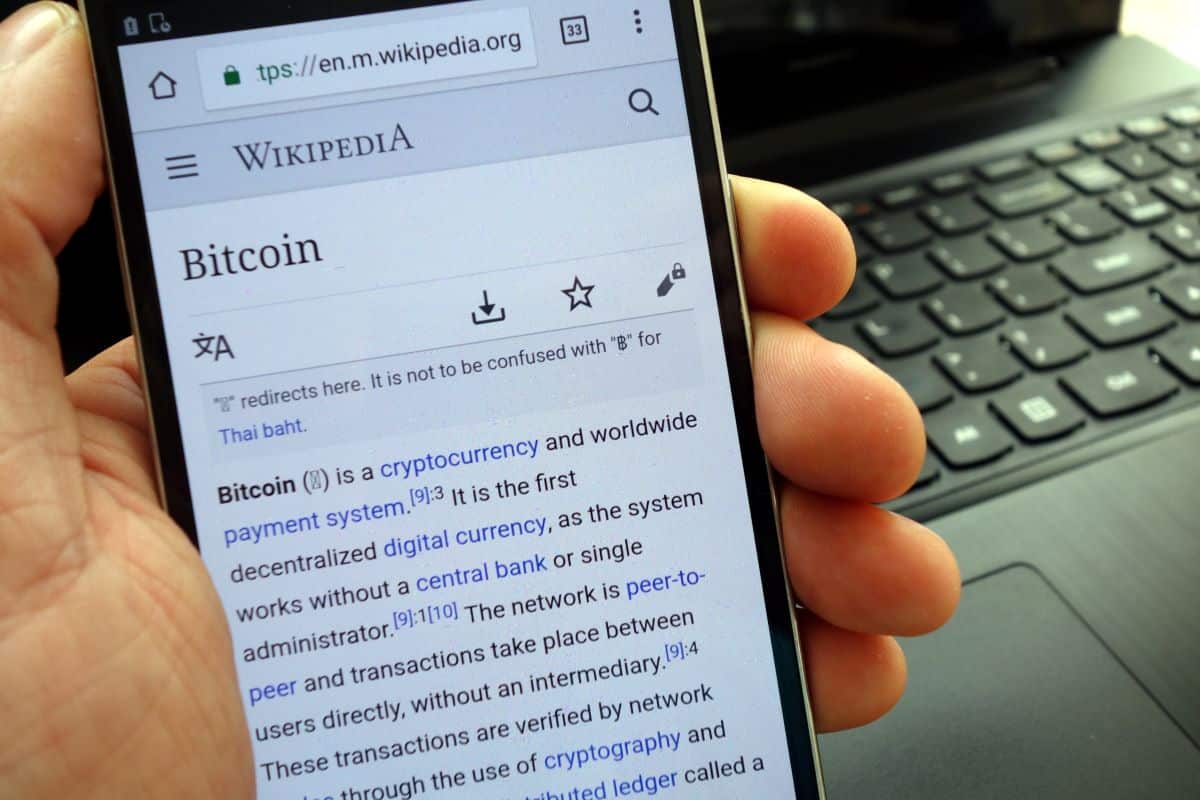“Banks Work, Bitcoin Doesn’t” Wikipedia Co-founder Fires Shots at Bitcoin, Community Responds
Publikováno: 13.12.2023
Bitcoin Wikipedia Source: Adobe / piter2121 Wikipedia co-founder Jimmy Wales criticized Bitcoin (BTC) on the asset losses when users forget their wallet passwords against the reality of centralized finance sparking wide controversy among crypto enthusiasts. Wales wrote on X (formerly Twitter) against the structure of Bitcoin in a sarcastic manner stating that if he loses […]
The post “Banks Work, Bitcoin Doesn’t” Wikipedia Co-founder Fires Shots at Bitcoin, Community Responds appeared first on Cryptonews.

Wikipedia co-founder Jimmy Wales criticized Bitcoin (BTC) on the asset losses when users forget their wallet passwords against the reality of centralized finance sparking wide controversy among crypto enthusiasts.
Wales wrote on X (formerly Twitter) against the structure of Bitcoin in a sarcastic manner stating that if he loses his bank password, he doesn’t lose his assets but the same cannot be said among cryptocurrencies adding that banks work unlike Bitcoin.
I forgot my bank password and lost my entire net worth. No, actually, that didn't happen, because banks work and bitcoin doesn't.
— Jimmy Wales (@jimmy_wales) December 10, 2023
The co-founder’s statement has been a major cause of criticism among centralized financed players and regulators saying investors could easily lose assets without recovery if they forget their wallet passwords although the danger of this is wiped off with centralized exchanges.
Bitcoin community fights back
The comments of the Wikipedia co-founder were met with pushback from the cryptocurrency community with many calling out his business model, explaining how the Bitcoin ecosystem works as well as highlighting other utilities of virtual assets.
Lyn Alden, an investment strategy expert wrote on X that she once received a heartbreaking email about a a Lebanese doctor who lost most of his net worth due to inflation with the assumption that money is safe.
One of the most heartbreaking emails I got was from a Lebanese doctor who lost 95% of their net worth due to hyperinflation, because they held it in banks/currency.
They were too busy being a doctor rather than a hands-on investor on the side as well, assuming the money is safe.
— Lyn Alden (@LynAldenContact) December 10, 2023
Alex Gladstein, the Head of Strategies at Human Rights Foundation Group told Wales that banks only work when you reside in a country that respects the rule of law making it okay for about one in ten people.
“Banks work decently so long as you live in a country with the rule of law and a strong currency. So maybe ok for ~1 billion people out of 8 billion people. And they tend to not work very well if you criticize the government or voice provocative opinions.”
Decentralization: a driving force behind Bitcoin
A major utility for blockchain and decentralized finance is the elimination of middlemen who make the process more cumbersome and might be against the user’s best interest encouraging openness.
Based on this ideology, industry experts believe web3 can cater to the unbanked in remote areas rather than centralized finance which needs the presence of centralized personnel to be available. While banks may work for some, it is not a sustainable model for all, they claim.
Similarly, Samson Mow reminded Wales of the way his organization is run through seeking donations unlike Bitcoin adding that he had suggested to Wikipedia to buy Bitcoin a few years ago.
Others pointed at some implosions in centralized finance due to wrong decisions of banking executives stating that comparing both Bitcoin in private wallets and banks are not the same.
According to Daniel Scott, physically storing cash in the bank would be a better example. “That scenario is more akin to forgetting your password to a Bitcoin exchange, in which case you could reset it, like a bank. Physically storing the cash yourself would be a better example, but you lose that and it’s gone, the same as Bitcoin.”
The post “Banks Work, Bitcoin Doesn’t” Wikipedia Co-founder Fires Shots at Bitcoin, Community Responds appeared first on Cryptonews.